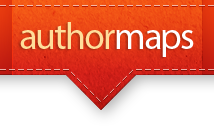Citation Indexes Uses for Writers
Academic and large Public Libraries have long relied on Citation indexes to assist scholars.
While many professors and college students learn “Who is Who” in their fields from their teachers, the experts in almost every field change over each decade.
Citation indexes in many scholarly fields attempt to weigh in on Who’s Who by showing who cites who in their scholarly papers.
While not a foolproof method of identifying top scholars in a particular field, citation indexes can be of use to graduate students in particular when it comes to writing theses or dissertations.
They can also be useful to writers who want to find or any kind of experts in any particular subject.
Origins of Citation Indexes
Wikipedia says that early citation indexes existed for rabbinic and other religious literature the 12th century, followed by legal citation indexes in the 18th century.
As for Asian countries and other ancient cultures in the Middle East or Africa there may also have been some kinds of early citation indexes in their languages that Westerners are not familiar with.
In the 20th century, the Institute for Scientific Information (ISI) launched in the 1960s three of the most well-used indexes, namely the Science Citation Index (SCI) and the Social Sciences (SSCI) and the Arts and Humanities Citation Indexes. (AHCI).
Citation indexes for many other fields within these broad categories of scholarly research and discussion soon followed.
Impact of Computers on Citation Indexing
Early hardbound citation indexes were sometimes bulky and difficult to use. They were heavy, requiring leafing through them to find names and subjects of interest, and they were great dust catchers.
Wikipedia asserts that the first automated citation index was done by CiteSeer in 1997 using a web crawler search of pubic web sites that focused primarily on computer and information studies.
At the turn of the century publishers of citation indexes and other library reference books turned to creating online databases for citation indexing. Well-known scientific publishing company, Elsevior went so far as to combine subject searching with citation searching in the sciences and social sciences.
Improving Modern Citation Databases
However, as Google is currently learning, quantity and quality are difficult to balance when dealing with millions, billions, or even trillions of documents.
The precision (quality) versus recall (quantity) debates by librarians in the last century are rife in the citation index fields these days.
Altrametrics
Almetrics is a company attempting to build better filters for measuring academic scholarship in terms of quantity as well as quality.
Altmetrics’ critique of current citation databases is that they are slow in gathering citations, narrow in only citing peer reviewed materials—thus failing to reflect articles with impact outside of Academia
They add that current citation indexes don’t provide context and reasons for citing them. Thus, influential work may remain uncited by citation indexes. They also believe these indexes are easily gamed by those who would commit fraudulent scholarship.
These are all problems that Atrametics claims it can solve.
ORCHID ID
ORCHID ID (Open Researcher and Contributor ID) “is a nonproprietary alphanumeric code to uniquely identify scientific and other academic authors and contributors.”
Since 2012 this group has operated an open and independent registry where authors of scholarly works can create a “standard for contributor identification” to be used for their writings.
You might imagine that citing names of authors is not a problem, but as a former indexer I can attest that it certainly is, and as life-long author I strongly support the value of using one’s full name as well as creating a unique code for you and you alone.
That’s because, although my father used to take me fishing in Canada when a child, I am absolutely not, I repeat, not the author of a book about Fishing Hatcheries Management that once appeared under my name, Nancy K. Humphreys, in OCLC’s WorldCat Identities’ database (which appears to have been removed at my request.)
However, I am the author who wrote for Leaping LaCrosse News, misspelled as Humphries, Nancy (newspapers)
So if you’re the author of a scholarly article or book, check out ORCHID!
Author’s Note: If you are interested in how your book can be discovered at the library, please see my post, “Book Discovery at the Library – Part 2”






